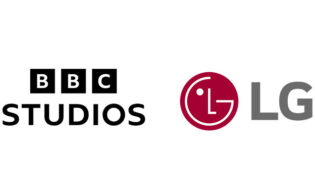Pluto TV’s Katrina Kowalski shared her overall programming remit and acquisitions strategy for the platform at the FAST Festival today.
Kowalski, senior VP of international content programming and acquisitions at the Paramount-owned AVOD and FAST channel service, participated in a keynote conversation with World Screen’s Anna Carugati, which you can view here.
Pluto TV marks its tenth anniversary this year, having launched in the U.S. on April 1, 2014. “At the time, the whole industry was shifting away from traditional TV and toward subscription VOD. Here we were with this contrarian idea, leaning into the ad-supported model. We defied the odds, and Pluto TV is now a bona fide success. We’ve learned that audiences still want a place where they can lean back and enjoy a linear viewing experience. Having humans who love content program channels for our audience gives us a unique advantage. There’s still remarkable nostalgia for the idea of traditional television, but, of course, with a future-facing digital twist, which we’re happy to deliver.”
With a footprint across more than 35 markets, Pluto TV reaches some 80 million viewers. Discussing her approach to content partnerships, Kowalski noted, “We have about 425 active partnerships across the globe. We’re looking for amazing content. More than that, we’re looking for true partnerships. We want to create success together, often by curating channels together to create a unique destination. We’re working on marketing campaigns together and thinking about how we announce our deals in the press. We want our partners to think about the audience like we do, taking care of smaller, granular details like versioning or dubbing. But also, partners who can appreciate the expertise that we bring as pioneers in the FAST space to make their content stand out on the platform.”
On works best for FAST channels, Kowalski boiled it down to programming “that is easy for people to start watching. More often than not, it’s procedural content, where you’re not having to follow a storyline, although we have seen some success in that vein as well. In terms of most successful categories, crime, comedy and classic television are top performers in almost every market. Reality is also a top category. When you start digging deeper into genres, we’ve seen significant fandoms for Westerns, paranormal, horror and true crime. Anime is having a real moment. There’s success in more traditionally broadly appealing genres and a rich interest in niche programming. It’s our goal to keep serving those fans on both sides.”
Kowalski spoke more about the platform’s team of content curators. “They’re the heartbeat of the content strategy,” she said. “We have content editors in all of our local markets. They’re tapped into their region better than anyone outside their region would be. They’re the advocates for their audience. These people love content. Sometimes, it can be in one genre. We’ve got people passionate about horror, paranormal and true crime. That’s incredible, especially when trying to grow a niche audience. Combined with their love and passion for TV and movies, they understand data. They’re remarkably savvy and constantly look at the consumption data to inform how they curate and program channels. It’s a perfect marriage of art and science.”
Beyond general entertainment, sports and news are also vital to Pluto TV, Kowalski noted. “They do heavy lifting for us in different ways,” she said. “In Canada, for instance, we have 13 news channels in our partnership with Corus and their global news team, so we can deliver news in several cities per province. It drives frequent and habitual viewing. The trick is to entice those fans to watch more content, so after they’ve completed their daily dose of news, they’re into a comedy, a documentary, a movie or a crime series.”
Sports, similarly, “is a huge and important driver of users. We’ve seen that with several of the live events that we offer. In our partnership with DAZN, we unlocked several live dart championships this year, with incredibly dramatic results in users. Sports certainly does an incredible job bringing returning users and even attracting new users. Similar to what I said about news, we can leverage sports events and drive discoverability of other content.”
Kowalski stressed the importance of curating the programming mix to meet the needs of individual markets. “No two markets are the same. The audience, the cultural sensibilities, even the sense of humor; it’s all unique. It’s such an important component of our overall content strategy. Yes, we’ve seen some global phenomena like South Park, NCIS or CSI; Hollywood hits that have traveled and are juggernauts in almost every market they go into. Equally as powerful are some of the local offerings. Last year, we acquired Paradise Hotel in its 15th season in the Nordics. It was an exclusive Pluto TV moment. That show alone drove Pluto TV to be the most downloaded app in the region. Audiences appreciate having local flavor.”
Kowalski discussed how Pluto TV’s teams use data to inform content decisions. “The beauty of the digital world is that we have data at our fingertips almost instantaneously. We’re relying on it, making changes and iterating all the time. We want to ensure that we’re constantly making decisions rooted in data to propel the service. Sometimes, a show will have huge numbers and we’ll keep that on the platform for as long as possible. Sometimes, a show has a smaller audience, but the minutes per user are increasing, so we know we’ve got a niche audience. How we read the data, analyze it and make those choices can be different per region, per show, in the genre, even seasonally. Data is critical. We couldn’t be where we are without it.”
Pluto TV also benefits from cross-pollination opportunities within Paramount. “As an example, last year in Canada, when Mission: Impossible—Dead Reckoning Part One came to theaters, we lit up a Mission: Impossible stunt on Pluto TV in Canada, which meant that we got to unlock all of the past Mission: Impossible movies for a short amount of time. That was all meant to support Mission: Impossible—Dead Reckoning, but also, we could capitalize on the zeitgeist of that movie for Pluto TV.”
Similarly, Pluto TV featured Frasier as the reboot premiered on sister SVOD service Paramount+. “We’ve been able to showcase sneak peeks or previews of Paramount+ originals, all in efforts to drive back to Paramount+ to entice more people to check it out and subscribe. We can all work together and support each other.”






